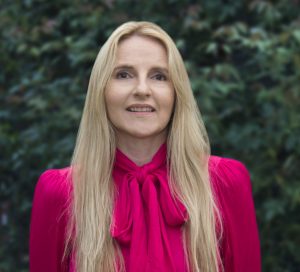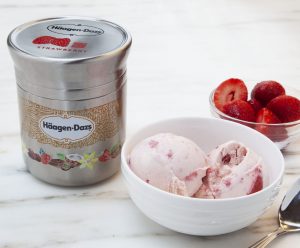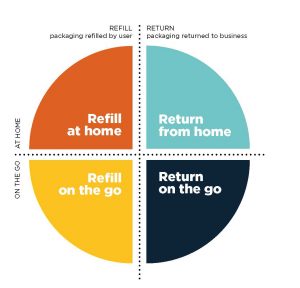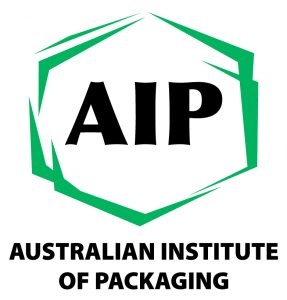
With consumers demanding retailers and brands reduce their use of unnecessary packaging on products a shift has occurred with more and more reusable and refillable programs being trialled across the world.
By Australian Institute of Packaging Executive Director Nerida Kelton.
Many retailers and brands are trialling the reuse model to determine whether consumers truly are prepared to change their buying behaviour to become more sustainable.
Whilst reusable and refillable programs are receiving positive feedback in other categories such as domestic, household and cosmetics, the food models may present more barriers, particularly around perceptions of health, safety and hygiene. How retailers and the partner brands communicate the messaging is paramount to the success of the reuse model for food categories.
Loop: a new waste-free and reusable way to shop
One of the most innovative global programs for reusable and refillable packaging is Loop; a first-of-its-kind service from global recycling organisation TerraCycle. The model is designed to create a zero-waste environment whereby retailers, packaging suppliers, brands and consumers work together to effectively minimise unnecessary single use packaging.
The Loop program enables products to be delivered to a consumer’s home in zero-waste packaging that has been designed in partnership with the brands. Some of the food brands that are partnering with the program include Nestlé, Burlap & Barrel, Danone, Nature’s Path Organic, Häagen-Dazs, International Harvest and Reinberger Nut Butter and Puretto.
How does Loop work in a retail environment?
The customer purchases the product and initially pays a 100% refundable deposit to ‘borrow the returnable packaging’. Once consumed Loop collects the empty packaging from the household and ensures that the packaging undergoes a rigorous hygienic cleaning process specially designed for its category and product type. Loop returns the cleaned packaging to the manufacturer who refills the product ready for repurchasing and continuing the ‘loop’. The deposit is refunded when the customer no longer requires the product.
The Loop packaging is designed to be durable, reusable, and refillable and as an alternative to single-use packaging. The packaging design has taken into consideration design functionality, end-of-life, use of recycled content, reusable materials, and a recycling methodology for all solutions. To achieve the environmental benefits the Loop program packaging also needs to achieve the required number of return trips/usage. This is a critical design aspect to balance the additional environmental factors (CO2/energy/water) that will be incurred with the extra packaging weight, transport, and cleaning involved. A Life Cycle Assessment will be important in determining the best packaging formats to ensure that the packaging can be recycled at its end of life.
The Loop program is now available in France (Carrefour), the United States (Kroger and Walgreens) and the United Kingdom (Tesco) and Canada (Loblaws). Programs are coming soon across Japan (AEON), Australia (Woolworths) and Germany.
 Refillable Häagen-Dazs right to your door
Refillable Häagen-Dazs right to your door
Nestlé, in partnership with Loop, have developed a reuse model that enables consumers to enjoy Häagen-Dazs in reusable packaging. Deliveries are made to the consumer’s front doorstep in customised, durable packaging that is then collected, cleaned, refilled and re-used. Häagen-Dazs has designed a reusable double-walled steel canister that keeps the ice cream at optimal condition during transport and consumption. The canister design ensures that when opened, the ice cream melts more quickly at the top than at the bottom of the container. The canister is then sent back to a facility for cleaning and reuse.
In-store refill stations and sustainable stores
In recent times there has been an encouraging shift in the retail environment where a broad range of brands are trialling refill stations in store. In-store refill stations are convenient for the customer and are another means of minimising unnecessary packaging in the retail aisles.
Asda trials new sustainability store
In late 2020 Asda, in the UK, opened a trial sustainability store in Middleton, Leeds. During the trial, customers will be able to choose from more than 30 packaging-free product lines from refill stations. They include Kellogg’s cereals, PG Tips tea bags, Quaker Oats porridge and Vimto cordial. Asda has also made some of its own-brand pasta and rice lines available in a packaging-free format.
Nestlé refill stations to help customers reduce their use of single use packaging
In May 2020 Nestlé announced a pilot program in three stores in Switzerland for in-store refill stations for soluble coffee. Customers can bring in their own reusable Nestlé jars and conveniently refill their coffee. The user-friendly system created in partnership with MIWA, also enables customers to have digital access to product information such as shelf life and ingredients.
 Another form of reusable packaging is to provide an attractive and durable pack to replace single-use packaging. This packaging design concept will be particularly important where current packaging formats are not recyclable. A prime example of this is trigger spray packs, where the current multi-components trigger sprays make them difficult to recycle. The ‘refill option’ for the reusable pack is achieved by providing a lightweight recyclable refill pack.
Another form of reusable packaging is to provide an attractive and durable pack to replace single-use packaging. This packaging design concept will be particularly important where current packaging formats are not recyclable. A prime example of this is trigger spray packs, where the current multi-components trigger sprays make them difficult to recycle. The ‘refill option’ for the reusable pack is achieved by providing a lightweight recyclable refill pack.
Murray River Organics launched in 2020 a muesli range in the reusable PET cannister. MRO is examining opportunities to develop recyclable refill packaging to ensure their ‘reusable’ cannister can also be a ‘refillable’ cannister. A refill pouch can be one-way that food products can counter negative perceptions of health, safety and hygiene issues.
It is encouraging to see so many retailers and brands trialling the reuse model and working with their customers to find out how the world can collectively eliminate unnecessary single use packaging pollution.
I look forward to seeing consumers embrace these programs so that we can head towards a zero-waste world.
In 2019 Ellen MacArthur Foundation’s New Plastics Economy initiative introduced its research on reuse models. The research highlights six ways that reuse can bring significant benefits to both users and businesses:
- Cut costs
- Adapt to individual needs
- Optimise operations
- Build brand loyalty
- Improve user experience
- Gather intelligence.
The Ellen Macarthur Foundation has developed four reuse models that can help deliver a superior user experience.
- Refill at home
This model is when users refill their reusable container at home (eg, with refills delivered through a subscription service. This model works particularly well for e-commerce as the online interface enables communication of an integrated solution and at the same time there is no competition for shelf space from products sold in standard packaging.
- Refill on the go
This model is when users refill their reusable container away from home (eg, at an in-store dispensing system). This model requires a physical store or dispensing point, which makes it better suited to traditional retail outlets and urban environments. In low-income markets, the model can accommodate customers’ needs for small quantities at affordable prices without relying on single-use sachet.
- Return from home
This model is when packaging is picked up from home by a pick-up service (eg, by a logistics company). This model is suitable for e-commerce as the pickup of empty packaging can be combined with the delivery of new products. It is particularly well suited for urban areas with reduced travel distances between deliveries.
- Return on the go
This model is when users return the packaging at a store or drop-off point (eg, in a deposit return machine). This model is widely applicable as it can substitute most single-use packaging without changing the fundamental purchase situation.
 About Nerida Kelton MAIP
About Nerida Kelton MAIP
Nerida has worked in the Packaging industry for over 23 years and is the Executive Director for the Australian Institute of Packaging (AIP) which is the peak professional body for packaging training and education in Australasia. Nerida is passionate about Sustainable & Circular Packaging and Save Food Packaging Design and is the lead for the Save Food Packaging Consortium project within the Fight Food Waste Cooperative Research Centre and was the packaging representative on the Department of Agriculture, Water and the Environment’s National Food Waste Strategy Steering Committee. She invests her time educating the industry on the important role that packaging plays in minimising Food Waste and how designing Save Food Packaging can make a difference. She is also committed to helping educate and train packaging professionals in the importance of sustainable and circular packaging design and recognising best practice in this area. Nerida believes that everyone has a role to play in minimising their environmental impact on our planet.
About Australian Institute of Packaging (AIP)
The Australian Institute of Packaging (AIP) is the peak professional body for packaging education and training in Australasia; helping to shape the careers of generations of packaging professionals – from packaging technologists to international packaging business leaders along with a host of people in associated disciplines – sales and marketing, purchasing, production and environment.
The AIP was founded in 1963 in response to a need for packaging technologists to interact and provide a professional identity for individuals within the packaging industry. Having served the industry for over 55 years the AIP is the only professional body designed to provide professional and personal development to all levels of the packaging industry; educational offerings include the Diploma in Packaging Technology, the Certificate in Packaging, the Master in Food & Packaging Innovation, Certified Packaging Professional.





